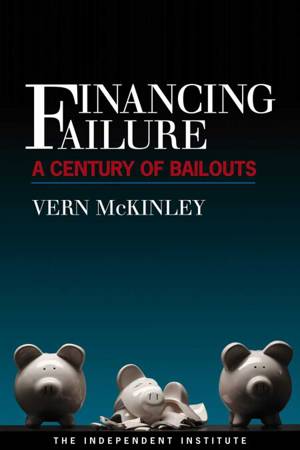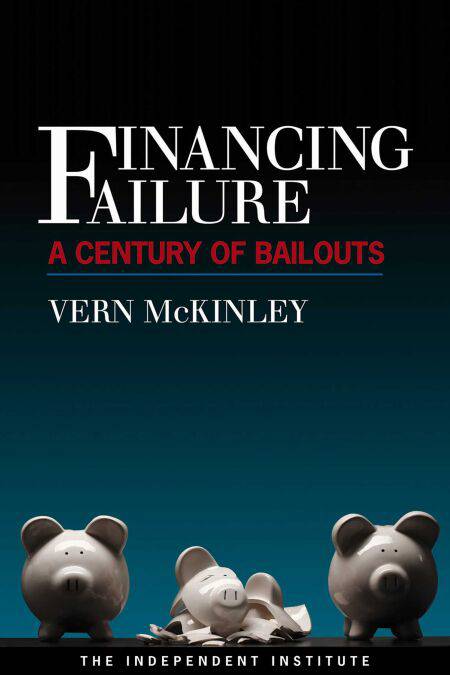
- Retrait gratuit dans votre magasin Club
- 7.000.000 titres dans notre catalogue
- Payer en toute sécurité
- Toujours un magasin près de chez vous
- Retrait gratuit dans votre magasin Club
- 7.000.0000 titres dans notre catalogue
- Payer en toute sécurité
- Toujours un magasin près de chez vous
Description
During the recent financial crisis no issue has aroused more passion than financial institution bailouts.
The standard rationale for the bailouts has been one of necessity and fear: federal regulatory agencies must have more authority in order to respond to the crisis, or else the public will face terrible consequences. But does this rationale hold up to close inspection?
In Financing Failure, Vern McKinley approaches the topic by examining the policy decisions behind the bailouts and by showing their connection to previous government interventions. He brings under scrutiny the policy decisions made by the Treasury Department, the Federal Reserve, and the FDIC during the crisis of the 2000s and links them to policies that go back as far as the 1930s. This history of bailouts reveals that the genesis of financial crisis is government policy, be it the mismanagement of monetary policy during the 1930s or the political push to expand homeownership that helped cause the 2000s crisis.
The nation’s federal financial regulators and the politicians claim to have saved the American economy. In truth they have done everything within their power to expand their own influence—often far out of view from the public and media. Instead of openly explaining their actions, the bailout agencies have attempted to prevent the public from reviewing their decision-making, often at tremendous cost to taxpayers. McKinley’s painstakingly researched and clear-headed analysis of bailouts and government intervention shows that the American public has accepted too many official pronouncements at face value, and that reining in the federal regulators is a necessary step toward truly promoting the safety and soundness of the financial system.
The standard rationale for the bailouts has been one of necessity and fear: federal regulatory agencies must have more authority in order to respond to the crisis, or else the public will face terrible consequences. But does this rationale hold up to close inspection?
In Financing Failure, Vern McKinley approaches the topic by examining the policy decisions behind the bailouts and by showing their connection to previous government interventions. He brings under scrutiny the policy decisions made by the Treasury Department, the Federal Reserve, and the FDIC during the crisis of the 2000s and links them to policies that go back as far as the 1930s. This history of bailouts reveals that the genesis of financial crisis is government policy, be it the mismanagement of monetary policy during the 1930s or the political push to expand homeownership that helped cause the 2000s crisis.
The nation’s federal financial regulators and the politicians claim to have saved the American economy. In truth they have done everything within their power to expand their own influence—often far out of view from the public and media. Instead of openly explaining their actions, the bailout agencies have attempted to prevent the public from reviewing their decision-making, often at tremendous cost to taxpayers. McKinley’s painstakingly researched and clear-headed analysis of bailouts and government intervention shows that the American public has accepted too many official pronouncements at face value, and that reining in the federal regulators is a necessary step toward truly promoting the safety and soundness of the financial system.
Spécifications
Parties prenantes
- Auteur(s) :
- Editeur:
Contenu
- Nombre de pages :
- 400
- Langue:
- Anglais
Caractéristiques
- EAN:
- 9781598130560
- Date de parution :
- 09-01-12
- Format:
- Ebook
- Protection digitale:
- Adobe DRM
- Format numérique:
- ePub

Les avis
Nous publions uniquement les avis qui respectent les conditions requises. Consultez nos conditions pour les avis.






